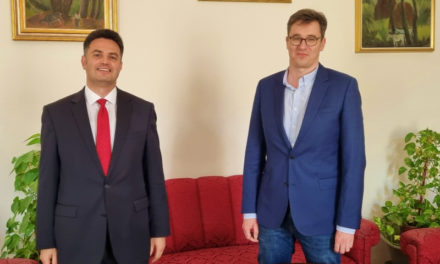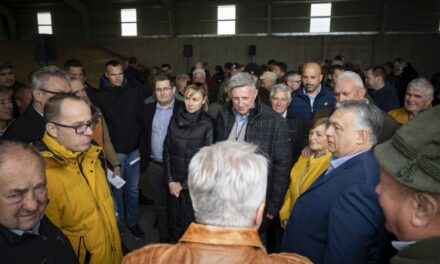According to Polish Deputy Minister of Foreign Affairs Pawel Jablonski, it is not the closer cooperation of the Central European countries, but the liberal double standards of Brussels that is tearing the European Union apart.
Magyar Hírlap asked the politician in Warsaw, where the State of Poland foundation held a conference entitled Generation of Freedom (GenFree) on the future of the Three Seas Initiative. We quote from the interview.
– The Three Seas Initiative includes twelve countries that lie between the Adriatic, Baltic and Black seas, Hungary, Poland, Slovakia and the Czech Republic are also members of the cooperation. How can this format cooperate with the Visegrád four?
- Very good. Cooperation in Visegrád is more focused on politics, it has worked well in the last thirty years, and we can represent our position more effectively in the European Union. We also need large, joint, long-term projects. That is why we created the Three Seas Initiative, because the cooperation of our region must extend beyond the four Visegrád countries.
We are bringing twelve EU countries together, we want to develop the north-south
connections in addition to the east-west, in which we have invested a lot, of course correctly.
– What is the European assessment of the initiative?
– I am convinced that this cooperation also strengthens European integration.
We have been told many times that we are not real Europeans, that we are building an alternative alliance, that we want to dismantle the union. This is of course not true. It is very important for us to strengthen integration, the common market. Here in Central Europe, we are the most competitive countries on the continent. The goal is not only to integrate with the West, but to unite with each other, so we can strengthen ourselves in the union. Our political power is also deeply rooted in the economy, we need investments and infrastructure. It is also important to get to know each other better, not to learn about what is happening in neighboring countries from the international, German, or French press.
- While many people in Europe tend to look askance at the Three Seas Initiative and the Visegrád Four, closer regional cooperation in the northern and western parts of the continent is far from unprecedented. Do these serve as patterns?
– These regional cooperations were established long before the establishment of the European Union.
I recently negotiated in Denmark, and our partners said that the Three Seas is very similar to the centuries-old cooperation of the Nordic countries. It is completely natural in Europe to cooperate primarily with our closest neighbors, partners, and friends , with whom we have a similar history, traditions, and ambitions for the future. The primary goal is always to increase the standard of living.
– Both Poland and Hungary are the target of frequent EU attacks, from the seventh article to breach of duty proceedings to, most recently, the withholding of recovery funds. What is behind the controversy?
– Unfortunately, there are many politicians in Brussels who are willing to do anything to punish countries that do not follow the liberal agenda. This is the case with Hungary, Poland and, to some extent, Slovenia as well. This is a bad direction for European integration. We Poles, Hungarians and other peoples of Central Europe accept that not everyone has to agree with us. We do not want to impose our traditions and values on other countries. We don't tell the Danes or the Dutch, for example, how they should live.
Further parts of the article can be read here.













